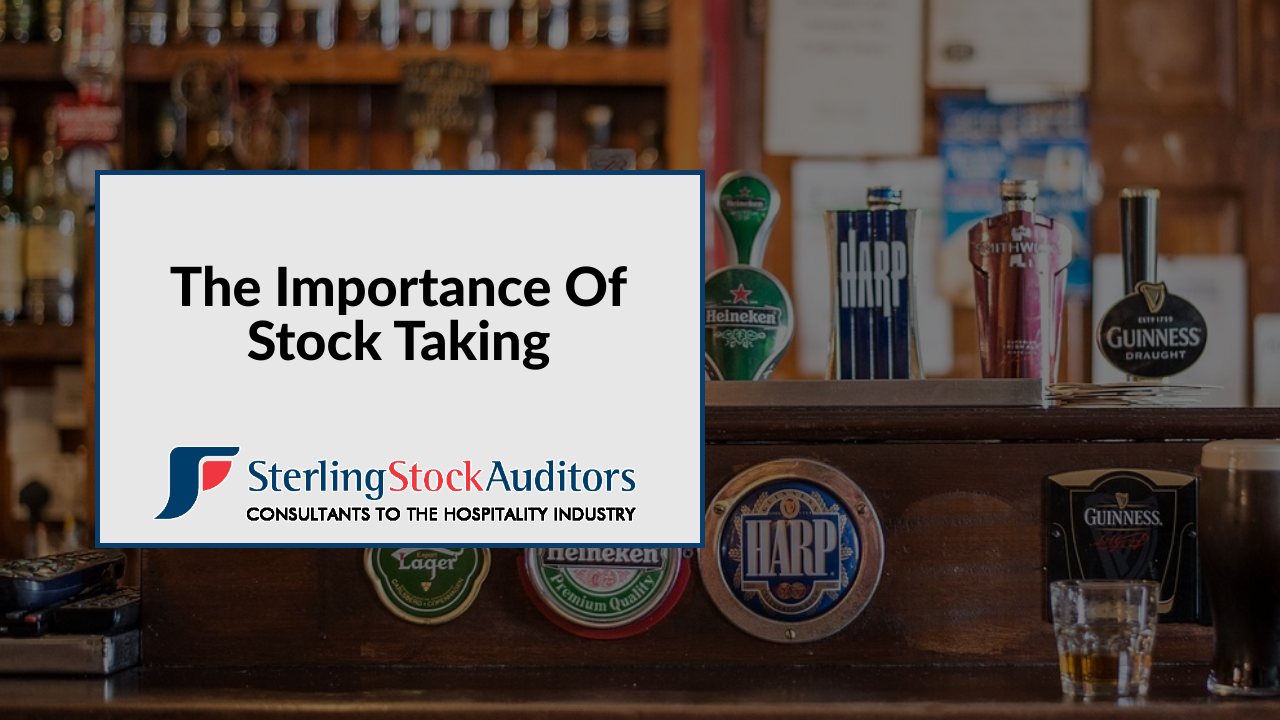
Stock taking is a fundamental aspect of managing any business, particularly in the food and drink industry where stock is often one of the largest assets on a company’s balance sheet.
This makes it crucial to keep track of stock levels to ensure achieving the very best margins and profitability possible.
This applies to both ‘wet’ (drinks / bars) and ‘dry’ goods (food) – both of which you can read more about here : https://sterlingstockauditors.co.uk/types-of-stock-takes
In the UK, there are several methods and practices that businesses can employ to manage their stock. The most common of these methods include a variety of different frequencies & reasons.
Valuations
This method involves an initial or final physical count of every item inside a business’ stock. Although this may be time-consuming and more costly, it does provide the most accurate picture of a business’ overall stock levels, and allow for the most appropriate adjustments and allowance when considering next moves. Whether that is continued business or selling the business on.
Periodic Stock Taking
Periodic stock taking involves counting stock at regular intervals. At Sterling Stock Auditors we carry these out for different clients and premises at various intervals from as frequently as weekly, 6 weekly, bi monthly or or quarterly.
This method is by nature less time-consuming than valuation but is a working figure for the stocktaking. This is actually one of the most accurate overviews of stock levels, even over perpetual stock taking, due to the data from stock in, and financial reporting. And it is a very good indicator of where the business is at and any opportunities for improvement, at appropriate intervals, and most effective cost level.
Perpetual Stock Taking
This method involves continuously updating stock levels as items are received or sold. This method is the most efficient for day to day and requires a robust stock management system to be in place, but often does not take into consideration many other factors such as potential theft spillage / wastage. These systems can in and of themselves be costly to implement in the first instance. It’s important to note with this method that at some point you will need to carry out a physical count to verify the theoretical stock holding
Regardless of the method used, stock taking is crucial in the food and drink industry, mainly because of the perishable nature of many products. It’s crucial to ensure that stock levels are managed effectively to minimise waste and reduce the risk of stock going out of date.
One of the challenges that businesses in the food and drink industry face when it comes to stock taking is the seasonality of some products.
For example, during the summer months, there is a higher demand for certain products such as ice cream and barbecue items. This means that businesses need to plan their stock levels carefully to ensure they have enough stock to meet customer demand without being left with excess stock at the end of the season.
Another challenge is managing the stock of products with a short shelf life, such as fresh produce or baked goods. These products need to be sold quickly before they expire, making it essential to have accurate stock levels to avoid waste.
The UK food and drink industry is also highly regulated, and as such these businesses need to comply with strict health and safety regulations. This includes ensuring that stock is stored correctly and at the right temperatures are maintained and recorded, in order to maintain its quality and freshness.
The introduction of technology such as stock management systems has made stock taking more efficient and accurate for businesses in the food and drink industry.
These systems can track stock levels in real-time, alerting businesses when they need to reorder stock or when stock is going out of date, but are not a replacement for manually stock taking, as these can be prone to not picking up theft, or other incidents where spoilage may happen.
In addition, technology such as barcode scanners and RFID tags can be used to automate the stock-taking process further. These tools allow businesses to track stock levels more accurately and quickly, reducing the time and cost associated with any form of physical stock taking.
In conclusion, stock taking is a crucial part of managing stock levels in the food and drink industry.
Businesses need to plan their stock carefully to ensure they have enough stock to meet customer demand while minimising waste and reducing the risk of stock going out of date.
The introduction of technology has made stock taking more efficient and accurate, allowing businesses to track stock levels in real-time and automate the stock-taking process further.
With the right stock-taking methods and practices in place, businesses can manage their stock levels effectively and ensure profitability in the highly competitive UK food and drink industry.
As a result, a good stock taking system and process, can give these businesses a competitive advantage over those who choose not to action this appropriately.

